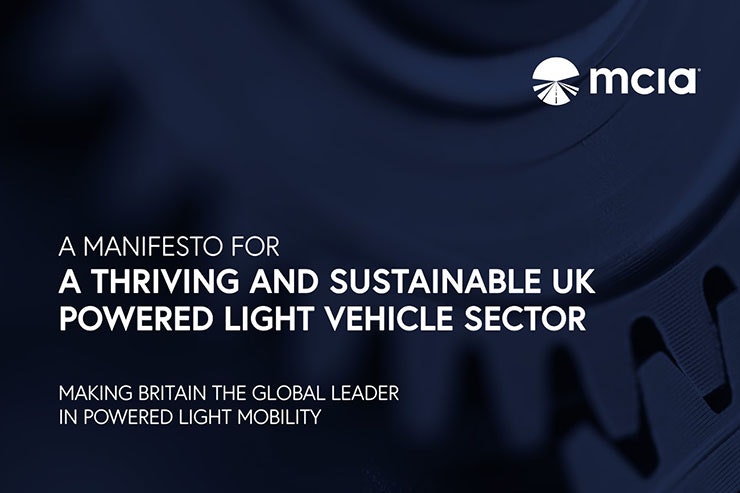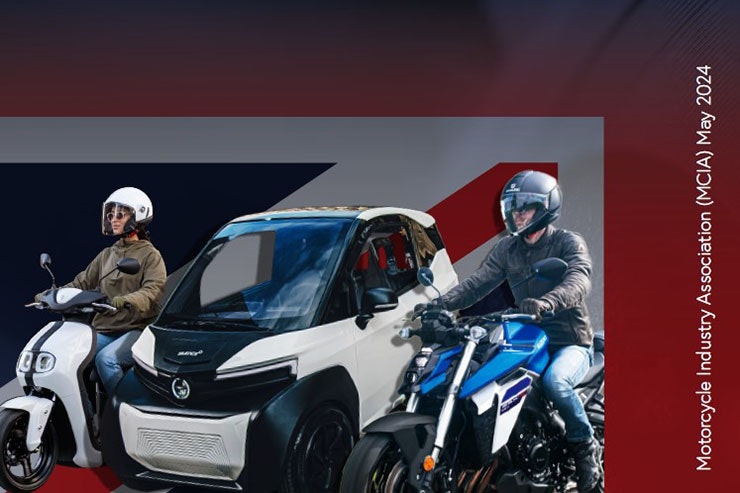MCIA tells election candidates to back £7bn motorcycling sector
By Ben Purvis
Motorcycle Journalist
31.05.2024
General Elections provide an unparalleled opportunity to persuade potential MPs to get behind causes as they try to boost their voter base and the Motorcycle Industry Association is grabbing that chance to get bikes firmly on the agenda under the next government.
We’ve already seen the National Motorcycle Council’s ‘Motorcycling Matters’ manifesto and the MCIA’s own document – which you can read in full here – follows some similar themes while adding business-oriented elements intended to emphasise Britain’s significant role in a hugely valuable global industry.
The MCIA’s manifesto comes in the form of a pledge intended to be signed by prospective parliamentary candidates, and an online form that allows all of us to put pressure on our own candidates to sign than pledge.
The pledge includes five straightforward points:
Accelerating the Road to Net Zero
Making licencing, training and testing simpler
Reclaiming Britain as the home of motorcycle manufacturing
Making PLVs (Powered Light Vehicles, including motorcycles) more attractive
Modernising PLV regulations to allow for new types of zero emissions PLVs
The MCIA’s pledge card for parliamentary candidates backing the proposals
Accelerating the Road to Net Zero
The first point, ‘Accelerating the Road to Net Zero’, isn’t about banning combustions engines in bikes. Instead it’s aimed at getting politicians to understand that the lifetime emissions of a motorcycle – even a conventional petrol-powered one – are often substantially lower than even those of electric cars. Bikes are responsible for just 0.46% of the UK’s domestic transport emissions, and by getting more people to use them instead of cars, the country can make an important step towards its zero emissions goals.
The MCIA also wants to see future rules pushing motorcycles towards zero emissions to be built on around ‘technology-neutral’ approach, with an open mind towards technologies like e-fuels and hydrogen power rather than a blinkered focus on nothing other than electric vehicles.
Making licencing, training and testing simpler
It’s been widely recognised that since the EU’s 3rd Driving Licence Directive (3DLD) was introduced more than a decade ago there’s been a stalemate in the battle to reduce motorcycle casualties – with figures flatlining despite the fact that before the overcomplicated and burdensome 3DLD licence regime they had been on a consistently downward path.
3DLD was intended to improve motorcycle training via staged licences and extra tests, but the reality is that its expense and complexity has put new riders off, making them more likely to ride on L-plates rather than undergoing the training and testing needed for a full licence. As such, and with the country no longer obliged to conform with EU licence laws, the MCIA is calling for a full-scale review of the licensing regime – something it sets out in details here.
Reclaiming Britain as the home of motorcycle manufacturing
The MCIA’s pledge doesn’t just back motorcyclists, but also the motorcycle industry – and it recognises that the technological upheaval around a shift to zero emissions is an opportunity for this country’s strong engineering base. To make sure Britain becomes a leader in zero emissions bikes, it’s calling on the next government to develop a comprehensive strategy to boost the component and system supply chain for electric bikes, encouraging new companies into the market and reducing manufacturing costs to allow more appealing, affordable electric bikes to be made here – in turn reducing emissions further.
Making PLVs more attractive
For a country that’s supposed to be pushing towards zero emissions the recent reduction in the Plug-In Motorcycle Grant as well as the elimination of grants towards infrastructure like home EV chargers for the majority of users are among the reasons that the sales of electric motorcycles actually dropped by 37.9% in 2023 rather than growing.
To turn that around, the MCIA wants the next government to create a tailored package of incentives backing motorcycles and PLVs, for instance by implementing ‘Ride to Work’ schemes and allowing PLVs to be included in automotive companies’ Zero Emissions Vehicle Mandate credits.
Modernising PLV regulations to allow for new types of zero emissions PLVs
You only have to look at the growth in use of unregulated electrically-assisted bicycles and scooters to see that laws around powered two-wheeled vehicles are falling behind the reality of the technology and the people using them.
The MCIA says that the current rules are stifling innovation and stopping legitimate manufacturers from bringing new zero emission vehicles to the market.
The slightly shady market for private e-scooters (illegal on both pavements and roads, apart from some pilot rental schemes, but still widely used regardless) and high-powered e-bicycles that can exceed the official performance limits for such vehicles but are nearly impossible to distinguish from legal ones, is booming. That encourages dodgy imports from companies that aren’t as rule-abiding as more legitimate manufacturers.
Tweaking the regulations around these vehicles can improve consumer choice and safety and support the development of innovative and legitimate PLVs.
Ask your prospective MPs to sign up
The MCIA has made it as easy as possible for you to ask your own parliamentary candidates to sign up. All you need to do is fill in your constituency, your name and your email address to send an email to the candidates standing there calling on them to sign the pledge.
If you’d like to chat about this article or anything else biking related, join us and thousands of other riders at the Bennetts BikeSocial Facebook page.

